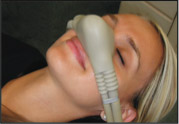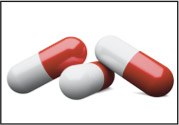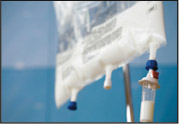Sedation Dentistry
When a patient suffers from dental anxiety, dental phobia, or other dental conditions, varying degrees of dental sedation can be utilized. There are many reasons patients consider sedation dentistry.
People Who:
It is important to review each option of sedation dentistry to decide which procedure best fits you personally.
 Nitrous Oxide: Nitrous Oxide (N2O) is simply a gas that has no odor or smell. When combined with oxygen, it produces a pleasurable euphoric feeling that spreads throughout your body, usually within five minutes from administration. With its rapid onset, ease of administration, quick reversal with no “hangover” effect, and history of safety, nitrous oxide is the most commonly used agent to increase patient comfort during dental procedures of all types. It is especially effective in apprehensive children. The biggest advantage to using this method is that once the gas is turned off, you regain your consciousness immediately and do not have any residual grogginess associated with other sedation methods.
Nitrous Oxide: Nitrous Oxide (N2O) is simply a gas that has no odor or smell. When combined with oxygen, it produces a pleasurable euphoric feeling that spreads throughout your body, usually within five minutes from administration. With its rapid onset, ease of administration, quick reversal with no “hangover” effect, and history of safety, nitrous oxide is the most commonly used agent to increase patient comfort during dental procedures of all types. It is especially effective in apprehensive children. The biggest advantage to using this method is that once the gas is turned off, you regain your consciousness immediately and do not have any residual grogginess associated with other sedation methods.
 Conscious Oral Sedation: Oral Sedation is usually administered by taking one or more pills. There are a number of common drugs that, when prescribed appropriately, will provide you with the comfort of relaxation, inhibit your fears and allow you to rest easy as your procedure is done. Patients generally experience a lower level of consciousness while still able to respond to verbal commands. Patients may fall asleep and most experience some level of amnesia as to the dental treatment or procedure. Pain free and stress free.
Conscious Oral Sedation: Oral Sedation is usually administered by taking one or more pills. There are a number of common drugs that, when prescribed appropriately, will provide you with the comfort of relaxation, inhibit your fears and allow you to rest easy as your procedure is done. Patients generally experience a lower level of consciousness while still able to respond to verbal commands. Patients may fall asleep and most experience some level of amnesia as to the dental treatment or procedure. Pain free and stress free.
 Intravenous sedation is also know as deep conscious sedation. It is used predominantly by oral surgeons and dentists with specialized training and additional certification. Although IV sedation delivers a deeper level of sedation, bodily functions still remain under the patient’s control. IV sedation produces a more pro- found level of amnesia regarding the procedure than with other sedation methods. The dosage can be completely customized to your needs and additional medications, such as antibiotics can also be administered throughout your body, greatly reducing your recovery time.
Intravenous sedation is also know as deep conscious sedation. It is used predominantly by oral surgeons and dentists with specialized training and additional certification. Although IV sedation delivers a deeper level of sedation, bodily functions still remain under the patient’s control. IV sedation produces a more pro- found level of amnesia regarding the procedure than with other sedation methods. The dosage can be completely customized to your needs and additional medications, such as antibiotics can also be administered throughout your body, greatly reducing your recovery time.
People Who:
- Have high fear
- Have had traumatic experiences
- Hate needles and shots
- Have difficulty getting numb
- Have very sensitive teeth
- Have complex dental problems
- Have a bad gag reflex
It is important to review each option of sedation dentistry to decide which procedure best fits you personally.
 Nitrous Oxide: Nitrous Oxide (N2O) is simply a gas that has no odor or smell. When combined with oxygen, it produces a pleasurable euphoric feeling that spreads throughout your body, usually within five minutes from administration. With its rapid onset, ease of administration, quick reversal with no “hangover” effect, and history of safety, nitrous oxide is the most commonly used agent to increase patient comfort during dental procedures of all types. It is especially effective in apprehensive children. The biggest advantage to using this method is that once the gas is turned off, you regain your consciousness immediately and do not have any residual grogginess associated with other sedation methods.
Nitrous Oxide: Nitrous Oxide (N2O) is simply a gas that has no odor or smell. When combined with oxygen, it produces a pleasurable euphoric feeling that spreads throughout your body, usually within five minutes from administration. With its rapid onset, ease of administration, quick reversal with no “hangover” effect, and history of safety, nitrous oxide is the most commonly used agent to increase patient comfort during dental procedures of all types. It is especially effective in apprehensive children. The biggest advantage to using this method is that once the gas is turned off, you regain your consciousness immediately and do not have any residual grogginess associated with other sedation methods. - Rapid Onset
- Very few side effects
- Works well for mild to moderate anxiety
- You can drive yourself to and from your Appointment
 Conscious Oral Sedation: Oral Sedation is usually administered by taking one or more pills. There are a number of common drugs that, when prescribed appropriately, will provide you with the comfort of relaxation, inhibit your fears and allow you to rest easy as your procedure is done. Patients generally experience a lower level of consciousness while still able to respond to verbal commands. Patients may fall asleep and most experience some level of amnesia as to the dental treatment or procedure. Pain free and stress free.
Conscious Oral Sedation: Oral Sedation is usually administered by taking one or more pills. There are a number of common drugs that, when prescribed appropriately, will provide you with the comfort of relaxation, inhibit your fears and allow you to rest easy as your procedure is done. Patients generally experience a lower level of consciousness while still able to respond to verbal commands. Patients may fall asleep and most experience some level of amnesia as to the dental treatment or procedure. Pain free and stress free.
- Easy to administer
- Relatively low cost
- Works well for most patients
- Must be escorted to and from the appointment
 Intravenous sedation is also know as deep conscious sedation. It is used predominantly by oral surgeons and dentists with specialized training and additional certification. Although IV sedation delivers a deeper level of sedation, bodily functions still remain under the patient’s control. IV sedation produces a more pro- found level of amnesia regarding the procedure than with other sedation methods. The dosage can be completely customized to your needs and additional medications, such as antibiotics can also be administered throughout your body, greatly reducing your recovery time.
Intravenous sedation is also know as deep conscious sedation. It is used predominantly by oral surgeons and dentists with specialized training and additional certification. Although IV sedation delivers a deeper level of sedation, bodily functions still remain under the patient’s control. IV sedation produces a more pro- found level of amnesia regarding the procedure than with other sedation methods. The dosage can be completely customized to your needs and additional medications, such as antibiotics can also be administered throughout your body, greatly reducing your recovery time.
- Instant Onset
- Used for more involved procedures or for moderate to high anxiety
- Must be escorted to and from the appointment